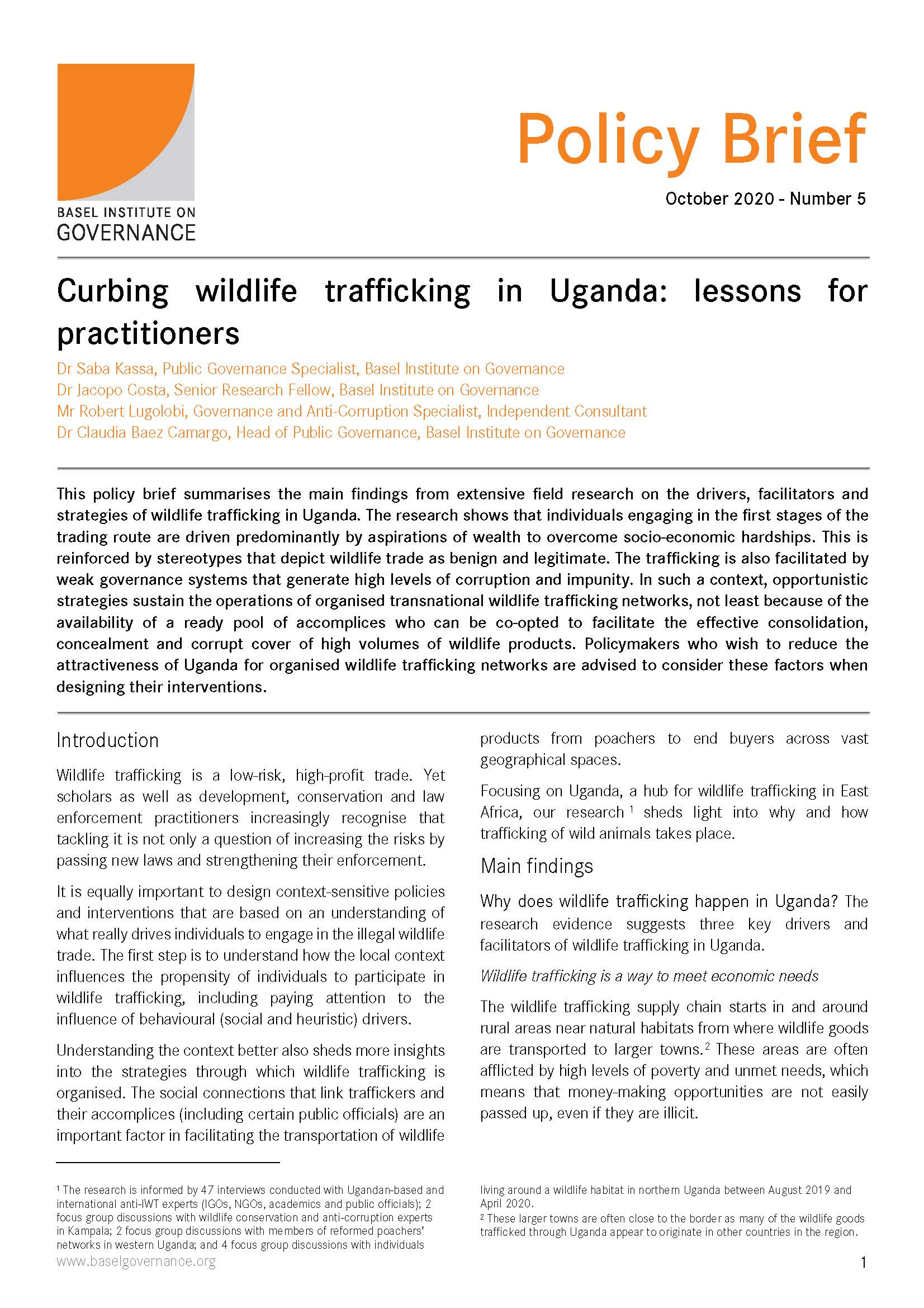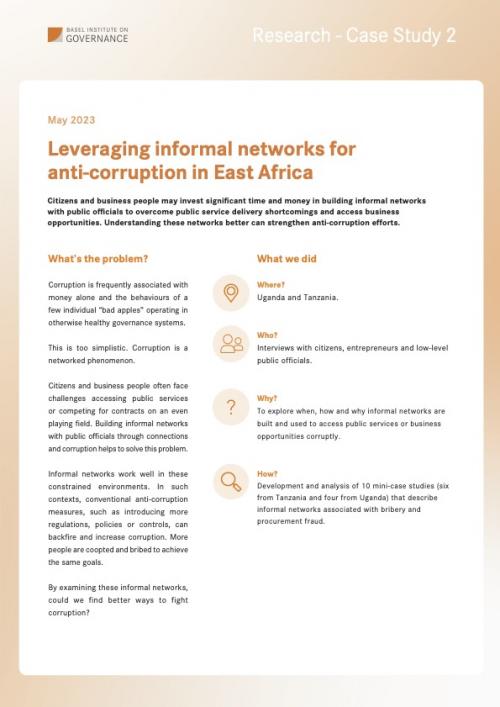Policy Brief 5: Curbing wildlife trafficking in Uganda: lessons for practitioners
This policy brief summarises the main findings from extensive field research on the drivers, facilitators and strategies of wildlife trafficking in Uganda. It translates the insights described in Working Paper 33: A worm’s-eye view of wildlife trafficking in Uganda into recommendations for practitioners and policymakers.
The research shows that individuals engaging in the first stages of the trading route are driven predominantly by aspirations of wealth to overcome socio-economic hardships. This is reinforced by stereotypes that depict wildlife trade as benign and legitimate.
The trafficking is also facilitated by weak governance systems that generate high levels of corruption and impunity. In such a context, opportunistic strategies sustain the operations of organised transnational wildlife trafficking networks, not least because of the availability of a ready pool of accomplices who can be co-opted to facilitate the effective consolidation, concealment and corrupt cover of high volumes of wildlife products.
Policymakers who wish to reduce the attractiveness of Uganda for organised wildlife trafficking networks are advised to consider these factors when designing their interventions.
About this Policy Brief
This publication is part of the Basel Institute on Governance Policy Brief series, ISSN 2624-9669, and supports the Basel Institute's Green Corruption programme.
It is licensed under a Creative Commons Attribution-NonCommercial-NoDerivatives 4.0 International License (CC BY-NC-ND 4.0). Suggested citation: Kassa, Saba, Jacopo Costa, Robert Lugolobi, and Claudia Baez Camargo. 2021 "Curbing wildlife trafficking in Uganda: lessons for practitioners." Policy Brief 5, Basel Institute on Governance.
This report was funded by PMI IMPACT, a grant award initiative of Philip Morris International (PMI). In the performance of their research, the authors maintained full independence from PMI. The views and opinions expressed in this document are those of the authors and do not necessarily reflect the views of PMI. Neither PMI, nor any of its affiliates, nor any person acting on their behalf may be held responsible for any use which may be made of the information contained herein.
Links and other languages



